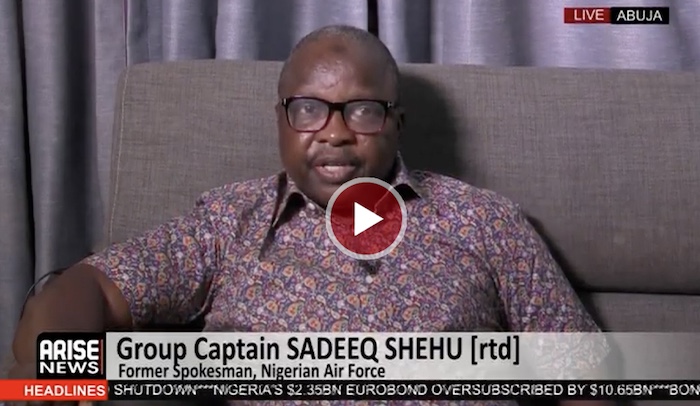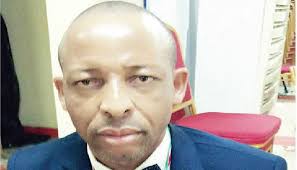
Former Nigerian Air Force spokesman, Group Captain Sadiq Shehu (rtd), has said that Nigeria’s approach to security funding and military strategy remains fundamentally flawed, warning that the country is fighting asymmetric warfare with a conventional mindset and misdirected spending priorities.
In an interview with ARISE News on Thursday, Shehu explained that while Nigeria allocates between 12 and 14 percent of its annual budget to security — comparable to other countries facing similar threats, the bulk of the money goes into salaries and allowances rather than operations, logistics, and equipment.
“Nigeria spends about 12 to 14 percent of its total budget on security. That is commensurate with what countries like Pakistan and India spend. But the devil is in the details. About 65 to 75 percent of that goes to salaries and allowances, leaving very little for operations, logistics, maintenance, or training,” he said.
Shehu, who once served as Director of Defence Information, warned that the trend has created a military that “cannot fight, cannot move, and cannot repair broken-down equipment,” because most of the budget is consumed by personnel costs and non-essential projects.
“When you spend 60 to 70 percent of your budget on recurrent expenditures, you’ll have a military that cannot fight. We are putting the money where it is not supposed to be,” he said. “In defence, it’s not how big you spend, it’s how smart you spend. And we are not spending smartly.”
He also criticised the National Assembly for failing to properly supervise how the security budget is spent, saying lawmakers often pressure the armed forces to divert funds into constituency projects that have nothing to do with security.
“The National Assembly only approves the budget but doesn’t follow up. You’ll see the Navy opening massive buildings that have nothing to do with improving security. It’s unfortunate. Lawmakers should stop asking security agencies to build projects in their villages. It’s a disservice to the country,” he said.
On inter-agency coordination, Shehu acknowledged that some progress has been made under the current military leadership but said much remains to be done to ensure proper collaboration and intelligence sharing between the Army, Air Force, Navy, and Police.
“I saw an improvement in coordination from the last set of service chiefs compared to their predecessors, but we are not yet there,” he said. “Coordination must start from joint training, especially at operational and strategic levels. Otherwise, we’ll keep duplicating efforts and wasting resources.”
Shehu also warned that Nigeria’s armed forces are overstretched and under-equipped for the scale of insecurity in the country.
“With a maximum of 270,000 personnel across all services, Nigeria’s military is grossly inadequate for its size and challenges,” he said. “The new CDS was right to admit that the armed forces lack equipment. It’s long overdue that our leaders start telling the truth.”
He called for a more transparent and balanced defence budget, with no more than 45 percent of spending going to personnel costs, and the remainder allocated to equipment, logistics, maintenance, research and development.
“If we don’t restructure our defence spending and hold both politicians and the military accountable, we’ll continue to have a large but ineffective budget,” he said. “Nigeria must spend smarter, not just bigger.”
Boluwatife Enome



